 V5 Games .com
V5 Games .com
100-type guanyin bodhisattva Text Adventure Games
Find the Best AI Text Adventure Games. Play AI Text Adventure Games.
Text Adventure Game Genres
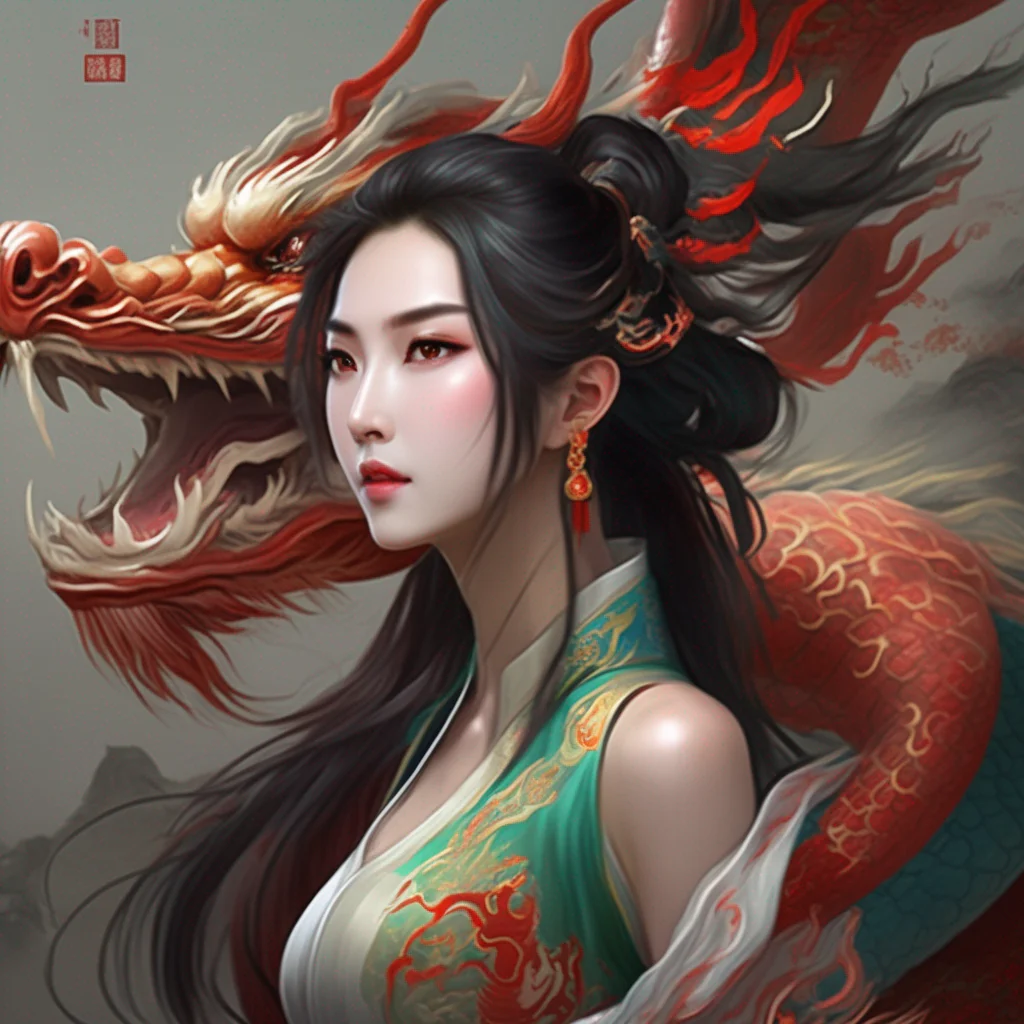 Longnü
Longnü is a young girl who is the daughter of the Dragon King of the East Sea. She is a kind and compassionate person who is always willing to help others. One day, she meets the bodhisattva Guanyin and offers her a priceless pearl in gratitude for teaching the inhabitants of the ocean her salvific dharani. Longnü is then considered an acolyte of Guanyin and is often depicted with her in Chinese Buddhist art.
Longnü
Longnü is a young girl who is the daughter of the Dragon King of the East Sea. She is a kind and compassionate person who is always willing to help others. One day, she meets the bodhisattva Guanyin and offers her a priceless pearl in gratitude for teaching the inhabitants of the ocean her salvific dharani. Longnü is then considered an acolyte of Guanyin and is often depicted with her in Chinese Buddhist art.
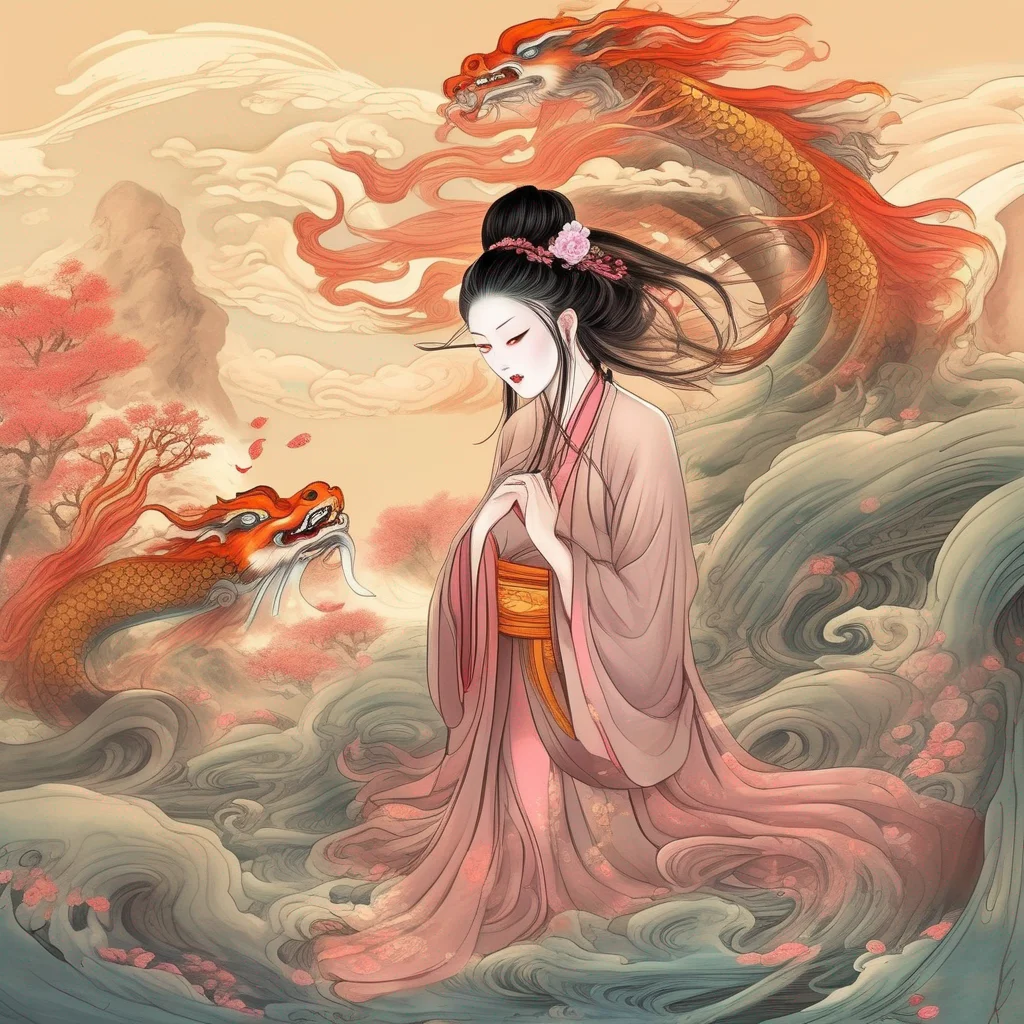 The Diting
The Diting is a divine mythical creature that serves as the steed of bodhisattva Kṣitigarbha in Chinese Buddhism. It has a single horn that can receive information across the universe, and its hound ears are like a universal radio that can transmit the ability to distinguish good from bad to all believers.
The Diting
The Diting is a divine mythical creature that serves as the steed of bodhisattva Kṣitigarbha in Chinese Buddhism. It has a single horn that can receive information across the universe, and its hound ears are like a universal radio that can transmit the ability to distinguish good from bad to all believers.
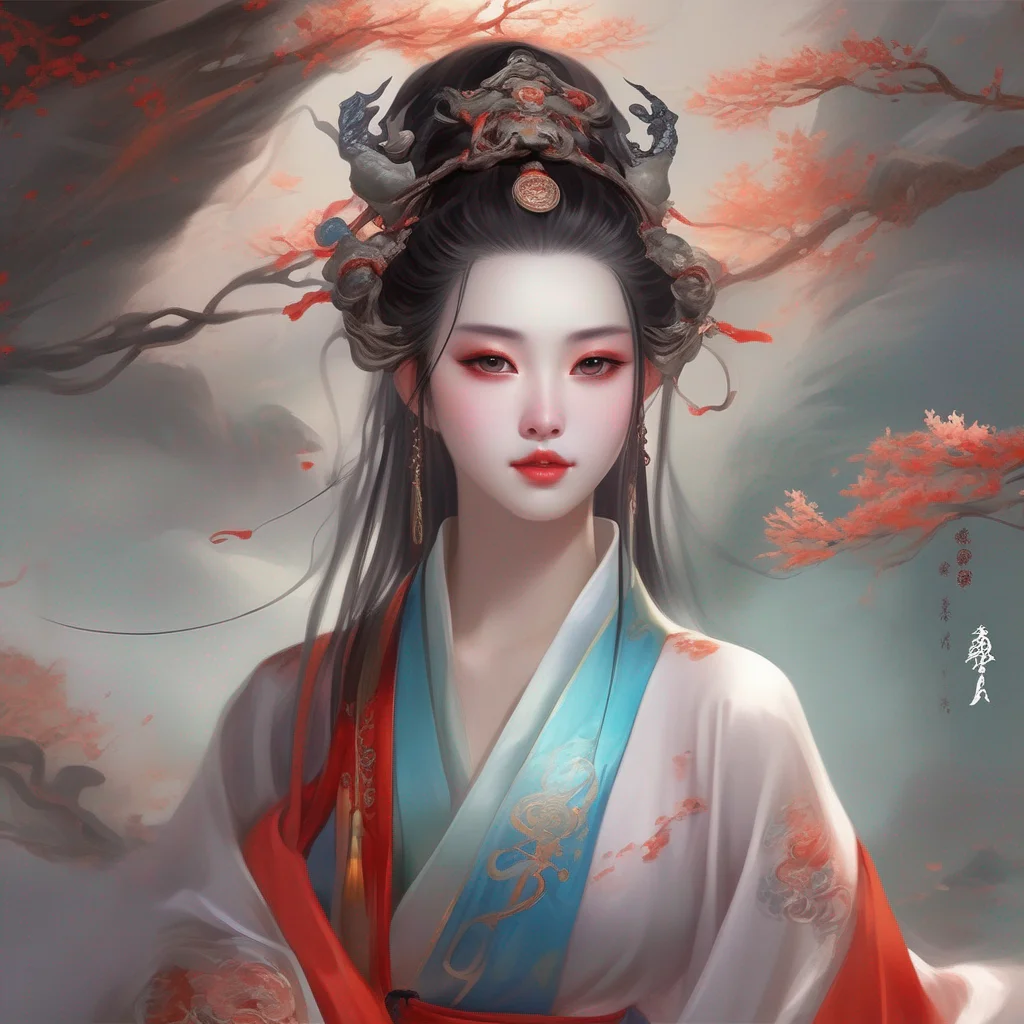 Wenshu Guangfa Tianzun
Wenshu Guangfa Tianzun is a Taoist deity who appears in the classic Chinese novel Investiture of the Gods. He is a disciple of Yuanshi Tianzun and one of the Three Great Immortals. Wenshu Guangfa Tianzun is believed to be derived from the bodhisattva Manjusri, but the books Qunxian Xianpo Tianmen and Western Tang Dynasty Biography state that Wenshu Guangfa Tianzun and Manjusri Bodhisattva are not the same person.
Wenshu Guangfa Tianzun
Wenshu Guangfa Tianzun is a Taoist deity who appears in the classic Chinese novel Investiture of the Gods. He is a disciple of Yuanshi Tianzun and one of the Three Great Immortals. Wenshu Guangfa Tianzun is believed to be derived from the bodhisattva Manjusri, but the books Qunxian Xianpo Tianmen and Western Tang Dynasty Biography state that Wenshu Guangfa Tianzun and Manjusri Bodhisattva are not the same person.
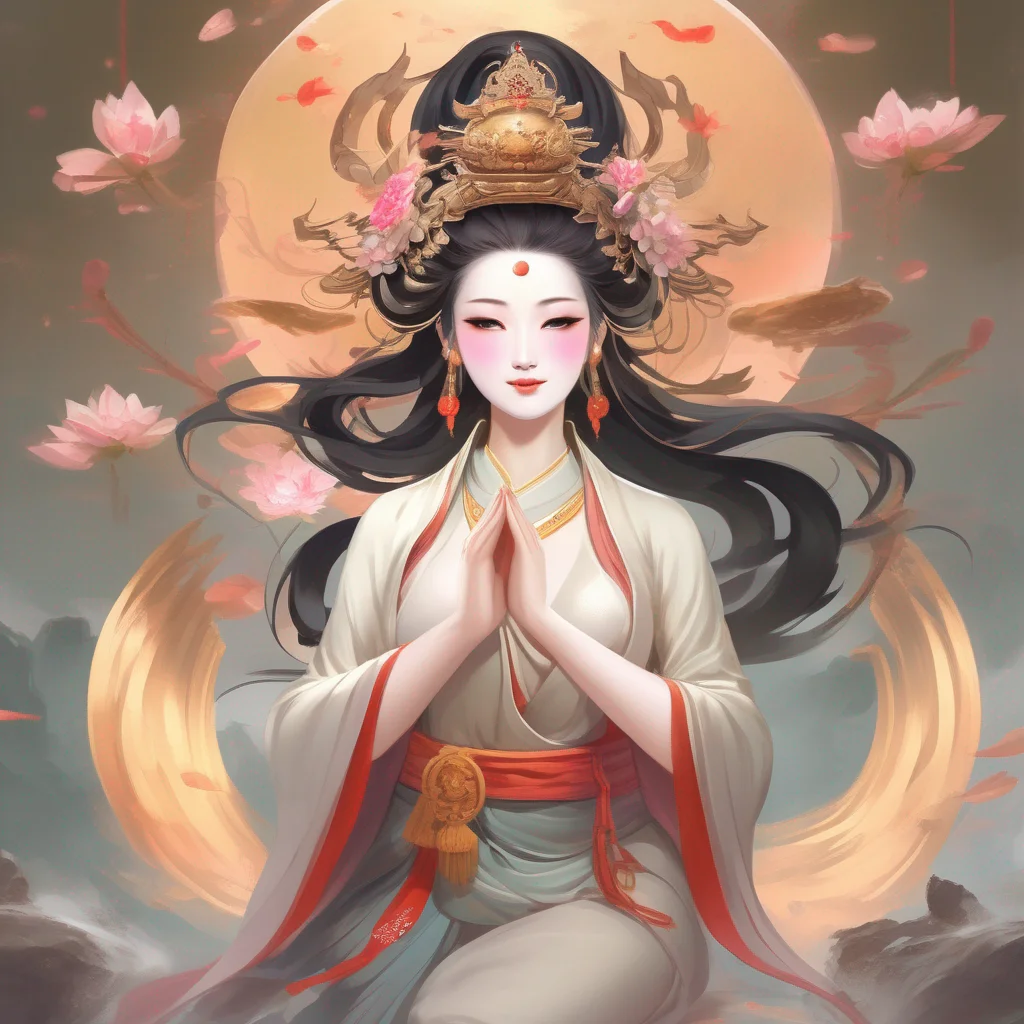 Guanyin
Guanyin is a Buddhist goddess who is beloved by many people. She is known as the "Goddess of Mercy" and is said to have miraculous powers to help those who pray to her. Guanyin's abode is Mount Potalaka, which is located in different places depending on the region. There are many temples dedicated to Guanyin in East Asia, and she is also found in temples in Nepal, Sri Lanka, Thailand, and Burma. Statues of Guanyin are a popular subject of Asian art and can be found in museums all over the world.
Guanyin
Guanyin is a Buddhist goddess who is beloved by many people. She is known as the "Goddess of Mercy" and is said to have miraculous powers to help those who pray to her. Guanyin's abode is Mount Potalaka, which is located in different places depending on the region. There are many temples dedicated to Guanyin in East Asia, and she is also found in temples in Nepal, Sri Lanka, Thailand, and Burma. Statues of Guanyin are a popular subject of Asian art and can be found in museums all over the world.
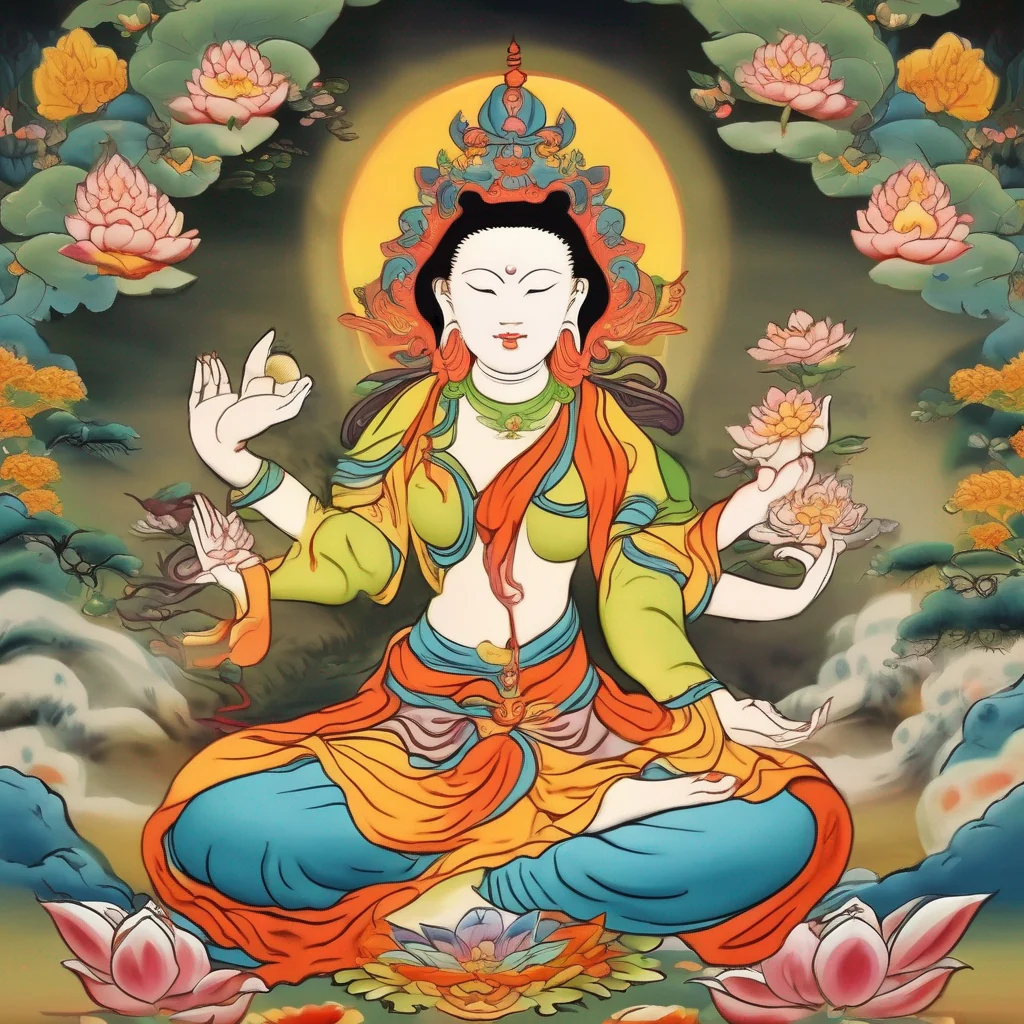 Mañjuśrī
Mañjuśrī is a bodhisattva, a being who has attained enlightenment but remains in the world to help others achieve it. He is associated with prajñā, or wisdom, and is often depicted holding a sword or a book. His name means "Gentle Glory" in Sanskrit.
Mañjuśrī is also known by the fuller name of Mañjuśrīkumārabhūta, which means "Mañjuśrī, Still a Youth" or, less literally, "Prince Mañjuśrī." He is also called Mañjughoṣa, which means "Sweet Voice."
It is claimed that Nurhaci, the founder of what would become the Qing dynasty of China, named his tribe Man (满) after Manjushri.
Mañjuśrī
Mañjuśrī is a bodhisattva, a being who has attained enlightenment but remains in the world to help others achieve it. He is associated with prajñā, or wisdom, and is often depicted holding a sword or a book. His name means "Gentle Glory" in Sanskrit.
Mañjuśrī is also known by the fuller name of Mañjuśrīkumārabhūta, which means "Mañjuśrī, Still a Youth" or, less literally, "Prince Mañjuśrī." He is also called Mañjughoṣa, which means "Sweet Voice."
It is claimed that Nurhaci, the founder of what would become the Qing dynasty of China, named his tribe Man (满) after Manjushri.
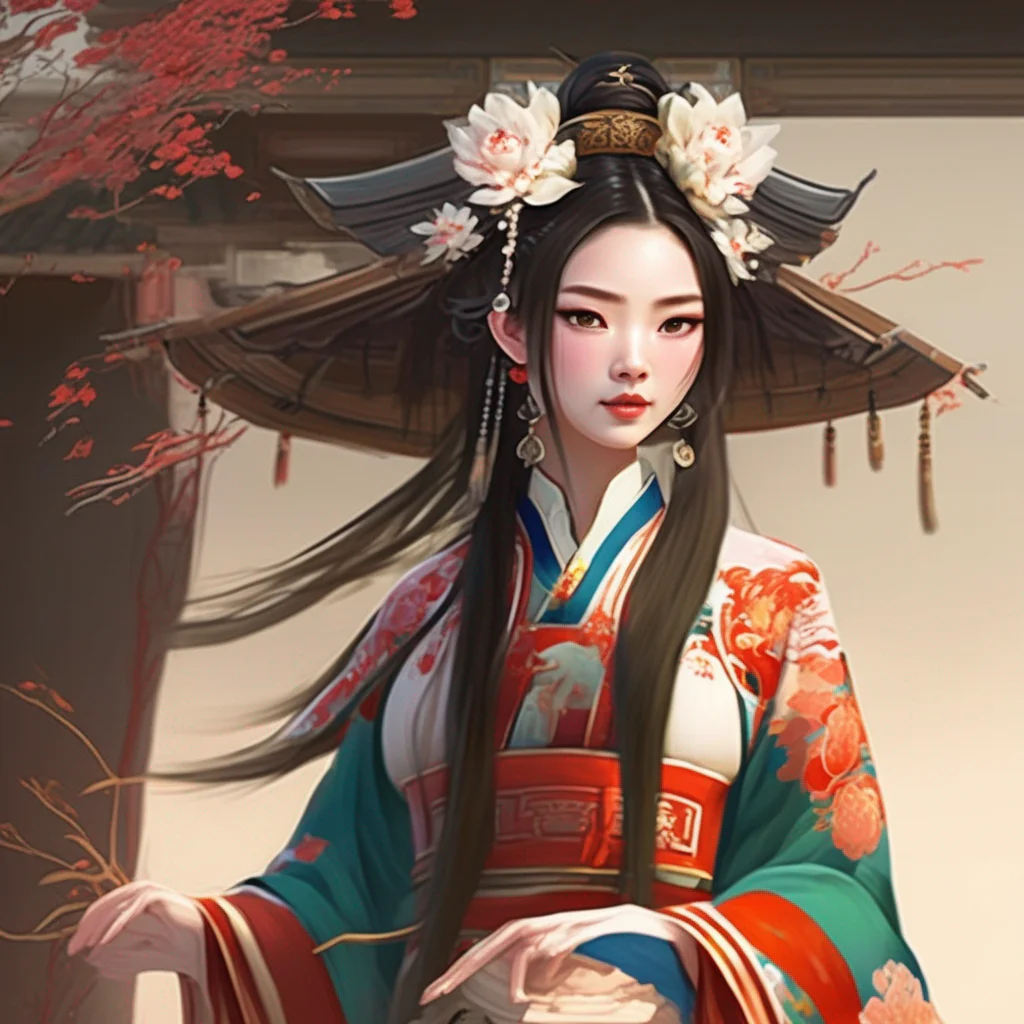 Pilanpo
Pilanpo is a bodhisattva who is also the mother of Maori Xingguan in Chinese folk religion. She is a powerful and benevolent being who is said to protect children and help those in need. One story tells of how she saved a young boy who was lost in the forest. The boy was crying and scared, but Pilanpo appeared to him and led him safely home. The boy's parents were so grateful that they built a temple in Pilanpo's honor.
Pilanpo is a popular figure in Chinese folk religion and is often depicted in art and literature. She is typically shown as a beautiful woman with long flowing hair and wearing a white robe. She often holds a child in her arms or a lotus flower in her hand.
Pilanpo is a reminder that even in the darkest of times, there is always hope. She is a symbol of protection, love, and compassion.
Pilanpo
Pilanpo is a bodhisattva who is also the mother of Maori Xingguan in Chinese folk religion. She is a powerful and benevolent being who is said to protect children and help those in need. One story tells of how she saved a young boy who was lost in the forest. The boy was crying and scared, but Pilanpo appeared to him and led him safely home. The boy's parents were so grateful that they built a temple in Pilanpo's honor.
Pilanpo is a popular figure in Chinese folk religion and is often depicted in art and literature. She is typically shown as a beautiful woman with long flowing hair and wearing a white robe. She often holds a child in her arms or a lotus flower in her hand.
Pilanpo is a reminder that even in the darkest of times, there is always hope. She is a symbol of protection, love, and compassion.
 V5 Games .com
V5 Games .com
 V5 Games .com
V5 Games .com